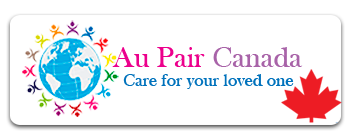Hosting An Au Pair | Family Requirements And Obligations
Unfortunately, regardless whether you choose an Au Pair or a Nanny, you instantly become an “employer” and are responsible for submitting payroll deductions to Revenue Canada. We do not recommend hiring anyone “under the table” as there are really no financial benefits and it could in fact end up costing you much more in the end.
Are Au pairs cheaper than nannies?
 We have knowledge of many families who have hired Au Pairs without Visas who have been turned away from Canada at the border. Don’t be discouraged however, as the process is not difficult and we will walk you through each step. This is also an absolute necessity if you claim childcare expenses on your tax return. If your Au Pair does not have a Social Insurance Number and does not have a work permit, you cannot claim the Au Pair’s salary as childcare expenses.
We have knowledge of many families who have hired Au Pairs without Visas who have been turned away from Canada at the border. Don’t be discouraged however, as the process is not difficult and we will walk you through each step. This is also an absolute necessity if you claim childcare expenses on your tax return. If your Au Pair does not have a Social Insurance Number and does not have a work permit, you cannot claim the Au Pair’s salary as childcare expenses.
Au pair Wages
How much do you pay an Au pair in Canada?
You must pay your Au Pair at least minimum wage. Minimum wage across Canada is as follows (as of January 1st 2023)
Alberta – $15.00
BC – $15.65
Manitoba – $13.50
New Brunswick – $13.75
Newfoundland – $13.70
Nova Scotia – $13.60
Nunavut – $16.00
Ontario – $15.50
PEI – $14.50
Quebec – $14.25
Saskatchewan – $13
Yukon – $15.70
Most Au Pairs appreciate being paid on a weekly basis which can be treated as an “advance” on the monthly pay. Do NOT get hung up on the internationally used reference to “pocket money.” In Canada we do not have such a thing. Pay is pay and regardless what you call it, you must report this to CRA. Ensure in your contract, you lay out a payment schedule. If you agree to pay your Au Pair weekly “advances” then ensure that is spelled out in the contract.
Payment Methods
How do we pay our Au Pair? Do not pay in cash! This is important for you as well as your Au Pair so that there is a paper trail. We’ve heard stories about families who have paid their nannies or Au Pairs in cash – and ended up in a disagreement over amount of pay and/or whether pay was made at all! Use cheque, e-transfer or direct deposit as your preferred methods. We have found e-transfer to be the easiest. Be sure to also keep track of all payments made to your Au Pair (written record) and share the record with your Au Pair. A pay stub must be issued at least once per month spelling out all deductions and payroll remittances. There is also a great on-line payroll service called WAVE.
Room and Board:
You will need to follow the guidelines for room and board deductions as dictated for each province.
Given the minimal room and board rates, being an Au Pair is a great job for many young women who participate in the IEC program as minimum wage at any other job would leave them with little extra cash after paying for living expenses. Rental rates in many major Canadian cities for shared accommodation are around $500/month on not including utilities and food.
**IMPORTANT NOTE** If you plan to deduct room and board directly from the Au Pair’s wages, you must write this into their employment contract. In order to deduct anything from your Au Pair’s pay other than income tax, CPP or EI, you must have consent from the Au Pair. Remember, you don’t have to deduct the full rate as per the reference below, you can deduct less if you choose or nothing at all. If you choose to deduct nothing or subsidize the room and board you need to document it as a taxable benefit. Talk to your accountant or send us an email if you need more information.
The following maximum room and board rates apply to each province.
BC – $100 per week
Alberta and all other provinces– $85.25 per week.
Obtaining a “Business Number”
In order to submit payroll remittances to Revenue Canada you will need to obtain a business number. We will later explain how to do this. You must do this prior to the Au Pair finishing her first month of work. It is quite simple and you can do this on-line or over the phone.
Taxes:
Taxes must be deducted from your Au Pair’s wages and submitted to CRA along with EI and CPP. This is calculated using the CRA Payroll Deductions Calculator.
Au Pairs can complete a Federal TD1 form opting out of paying federal income tax if the total annual salary will not exceed the basic personal amount (this includes any “world income” i.e. income earned in their home country). This leaves more money in the Au Pair’s pocket and less for you to submit to CRA… be careful however and try to extrapolate how much your Au Pair will make from January-December. If it exceeds the federal minimum of $11,327 she should be paying income tax. Because many Au Pairs come part-way through the year, it is easy for them to fall under this amount in the calendar year. If you are getting an Au Pair who has just completed high school or coming out of university it is unlikely she will have any world income from her home country to report. Generally if your Au Pair opts out of the Federal tax deduction, she will also opt out provincially. Let us know if you have any questions about this.
Drivers Licences
Every province has different legislation when it comes to licensing. If your Au Pair is from Europe, your province MAY have an exchange program enabling your Au Pair to trade in her country’s licence for a Provincial license. In this case most provinces require the Au Pair to present proof she has had a licence for longer than two years. If your Au Pair is a new driver, they will likely have restrictions in Canada based on her experience. These restrictions may include not carrying passengers which may be problematic if you require her to transport your kids. Make sure you do your homework before hiring your Au Pair and know the regulations in your province.
How long can your Au Pair drive as a “visitor” using her home country’s licence? In Alberta, your Au Pair may drive for up to one year on an International Drivers Permit alongside a driver’s licence from her home country. International Drivers Permits must be acquired in the Au Pair’s home country before she leaves for Canada. In BC, the limit for driving on an International Drivers Permit as a temporary visitor is 6 months. Check with your province’s licensing authority regarding restrictions.
Vehicle Insurance
You will need to notify your insurance provider if your Au Pair is going to be driving your vehicles. Your rates will change and it is necessary to know your Au Pair’s driving history and years of experience when providing information to your insurance broker.
Averaging Agreements
For those of you who work shift work or have irregular schedules… An employer and an employee can agree to average scheduled work hours over a period of one, two, three, four weeks. Averaging agreements must be in writing, and have a start date and an end date. Au Pairs may agree to work up to 12 hours in a day, averaging 40 hours in a week, without being paid overtime. Double time must be paid beyond 12 hours per day.
For example, your agreement states that your Au Pair is guaranteed pay for 30 hours per week but may work 20 hours one week and 40 the next. This is very helpful for shift workers with fluctuating schedules. Similarly if you require your Au Pair to work split shifts, this too should be in writing. Here is an example of what you could include in your contract to address the averaging agreement:
“Hours worked in the contract will be averaged based on a 35 hour work week. The family guarantees that the Au Pair will always be paid based on a 35 hour work week. On weeks when the Au Pair works more than 35 hours, the extra hours will be subtracted from future weeks and/or on weeks where the Au Pair works less than 35 hours, hours will be added to future weeks. The Au Pair’s schedule will be laid out four weeks in advance on the family calendar. Any changes to the monthly calendar past the 1st of the month must be initialled by both the family and Au Pair. Most weeks, the hours will be averaged between Mondays and Fridays and generally the Au Pair will only be required to work three to four days out of the week.
The Au Pair will not be expected to work Saturdays or Sundays unless an emergent situation arises or an agreement is reached between the Parents and the Au Pair. If a situation arises and the Au Pair is required to work in excess of the hours scheduled on a given day, the Au Pair will receive time and a half for any hours worked outside the agreement. This only applies to hours NOT scheduled up to a total of 12 hours in a day. If the Au Pair has already worked 12 hours and is required to work beyond their scheduled hours then the Au Pair will be paid double time. The Au Pair will be paid according to British Columbia labor standards and will be paid at a rate equivalent to the BC minimum wage.
Accumulated Time O / Banked Time
Some families offer “banked time” or time o in lieu for hours above 40 per week if agreeable by the Au Pair. In this case you would credit the Au Pair at 1.5 hours for every hour above 40. This banked time can be used for days o in future or cashed out at a later date. Keep good records of the banked time and make sure it is noted on the Au Pair pay stubs.
Overtime
Overtime is payable:
•Aer eight hours in a day if extra hours have been added to an Au Pair’s schedule, or
•If the Au Pair works more than an average of 40 hours in a week over the averaging period (e.g., 80 hours over two weeks, 120 hours over three weeks.)
Sick Leave
There is no requirement to give your Au Pair sick leave. This is a perk and some families do oer a few days per year.
Vacation Pay
When an employee takes a vacation after completing one year of employment, vacation pay must be at least four per cent of the employee’s total earnings from the previous year.
A person who is employed for less than one year is not entitled to take a vacation, but must be paid 4% vacation pay on termination of employment.
We generally recommend that regardless if your Au Pair works for you 6 months or 12 months, you afford them at least one week of paid holidays. One suggestion is to also offer the Au Pair as many unpaid holidays as you can, if it matches up with your own holiday schedule and you will not need assistance with childcare during that time. Your Au Pair is in Canada to experience life here and see the country, if she has no time o, this is a dificult task! Being allotted extra time o also goes a long way to show your Au Pair how appreciated she is. A happy Au Pair is a hard-working one. Always keep in mind that this is a reciprocal arrangement.
No pay for ineligible employees
An Au Pair who is not eligible for statutory holiday pay is not entitled to be paid an average day’s pay. If an Au Pair works on a statutory holiday she may be paid as if it were a regular work day. (In other words, if the Au Pair has not worked for you for more than 30 days).
Statutory holiday on a day off
When an Au Pair is given a day o on a statutory holiday, or it falls on a regular day o, she is entitled to be paid an average day’s pay.
An average day’s pay is calculated by dividing “total wages” earned in the 30 calendar days before the statutory holiday by the number of days worked. Vacation days taken during this period count as days worked.
“Total wages” includes wages, commissions, statutory holiday pay and vacation pay but does not include overtime pay.
Working on a statutory holiday
An Au Pair who works on a statutory holiday is entitled to be paid:
•time-and-a-half for the first 12 hours worked and double-time for any work over 12 hours; plus
•an average day’s pay.
Substituting statutory holidays
An employer and a majority of employees can agree to substitute another day o for a statutory holiday. The Act and Regulation apply to the substitute day as if it were the statutory holiday.
Provincial Medical Plans / Health Insurance
This is where you can really save money versus hiring a live-in caregiver – approximately $840 per year (British Columbia figures)!!! Because the Au Pairs come to Canada with their own insurance as a requirement of the Working Holiday Visa and the International Experience Canada program, you do not need to pay medical plan premiums or make any health care deductions. Under the Caregiver program an employer must pay their nanny’s medical plan premiums which costs the employer approximately $70/mth. This “savings” does not apply to Ontario however as healthcare premiums are paid by the individual directly through taxes and generally Au Pairs do not make enough money to have to pay income tax.
It is important to note that the Working Holiday Visa and the IEC program requires that your Au Pair come to Canada with private insurance that covers her the entire time she is in Canada. Provincial healthcare plans certainly make any required medical care more convenient, but it is a big extra cost in some provinces, especially considering your Au Pair has already spent a large amount of money on private insurance.
For those families who choose to include healthcare in your contract or your Au Pair opts to pay for provincial healthcare, below are province specific requirements for applying for provincial healthcare plans.
Workers Compensation Coverage
A family hiring an Au Pair to work in the home should register with their provincial workers compensation board or workers safety agency. The premiums for Au Pairs/Nannies/Live-in Caregivers are minimal but the ramifications if you do not register could be financially destructive. If a worker you’ve hired gets injured on the job and you’re not registered as required, you could be held liable for all compensation costs associated with the claim and for your unpaid premiums. Most importantly – having coverage protects you from lawsuits. It would be a family’s worst nightmare should something happen to their Au Pair while “on the job” but it is best to be educated and fully aware of the risks for failing to register. Premiums range from approximately$14-$30/mth depending on your province. Remember that these premiums can be included as childcare expenses according to CRA.





